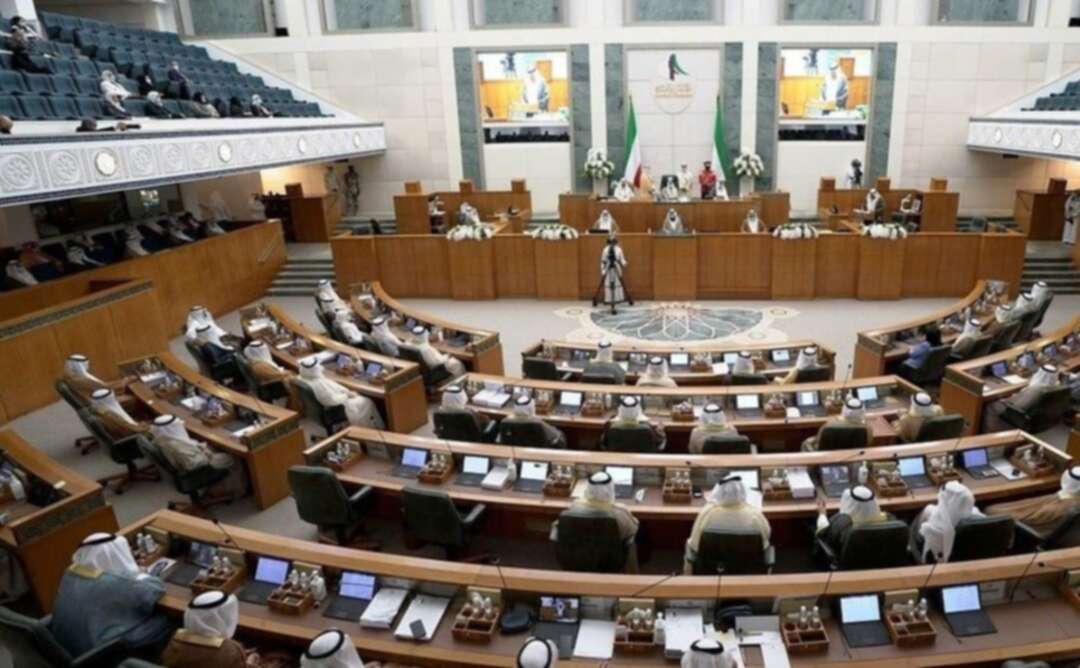-
Kuwait parliament passes COVID-19 relief bill after govt takes oath

Kuwait’s parliament approved laws guaranteeing bank loans for businesses hit by the COVID-19 pandemic after the government took its oath of office on Tuesday, but rejected an amnesty pardoning people charged with storming parliament in 2011.
Dozens of protesters and lawmakers gathered outside parliament in a sign of lingering tensions after a months-long standoff between the elected assembly and the appointed prime minister.
Only 33 of 50 members of parliament attended the session, the number required for a quorum.
In its first session since Emir Sheikh Nawaf al-Ahmad Al Sabah suspended it for a month, parliament approved a draft law to end pre-trial detention in freedom of speech cases and sent it for government approval, the assembly said.
In addition to passing draft bills guaranteeing local bank loans for small and medium businesses affected by the pandemic, it approved a law deferring loan payments for citizens for six months.
But parliament rejected “in principle” proposals for an amnesty law that included pardoning people charged with storming parliament, including former parliamentarians in self-exile abroad.
After December elections, a majority of lawmakers backed a motion to question Prime Minister Sheikh Sabah al-Khalid Al Sabah on various issues, including his choice of ministers.
The cabinet responded by resigning, and Sheikh Sabah named a new cabinet this month.
Tensions remain high after Kuwait’s constitutional court this month nullified the membership of opposition lawmaker Bader al-Dahoum. Dahoum, who was among protesters outside parliament, was one of two lawmakers who filed a new request to question the premier.
A government priority now is to push through a debt law allowing Kuwait to tap international markets to strengthen finances hit by low oil prices and the pandemic.
Kuwait’s parliament has the power to block legislation and question members of government, in which senior posts are held by ruling family members.
source: Reuters
Levant
You May Also Like
Popular Posts
Caricature
BENEFIT Sponsors BuildHer...
- April 23, 2025
BENEFIT, the Kingdom’s innovator and leading company in Fintech and electronic financial transactions service, has sponsored the BuildHer CityHack 2025 Hackathon, a two-day event spearheaded by the College of Engineering and Technology at the Royal University for Women (RUW).
Aimed at secondary school students, the event brought together a distinguished group of academic professionals and technology experts to mentor and inspire young participants.
More than 100 high school students from across the Kingdom of Bahrain took part in the hackathon, which featured an intensive programme of training workshops and hands-on sessions. These activities were tailored to enhance participants’ critical thinking, collaborative problem-solving, and team-building capabilities, while also encouraging the development of practical and sustainable solutions to contemporary challenges using modern technological tools.
BENEFIT’s Chief Executive Mr. Abdulwahed AlJanahi, commented: “Our support for this educational hackathon reflects our long-term strategic vision to nurture the talents of emerging national youth and empower the next generation of accomplished female leaders in technology. By fostering creativity and innovation, we aim to contribute meaningfully to Bahrain’s comprehensive development goals and align with the aspirations outlined in the Kingdom’s Vision 2030—an ambition in which BENEFIT plays a central role.”
Professor Riyadh Yousif Hamzah, President of the Royal University for Women, commented: “This initiative reflects our commitment to advancing women in STEM fields. We're cultivating a generation of creative, solution-driven female leaders who will drive national development. Our partnership with BENEFIT exemplifies the powerful synergy between academia and private sector in supporting educational innovation.”
Hanan Abdulla Hasan, Senior Manager, PR & Communication at BENEFIT, said: “We are honoured to collaborate with RUW in supporting this remarkable technology-focused event. It highlights our commitment to social responsibility, and our ongoing efforts to enhance the digital and innovation capabilities of young Bahraini women and foster their ability to harness technological tools in the service of a smarter, more sustainable future.”
For his part, Dr. Humam ElAgha, Acting Dean of the College of Engineering and Technology at the University, said: “BuildHer CityHack 2025 embodies our hands-on approach to education. By tackling real-world problems through creative thinking and sustainable solutions, we're preparing women to thrive in the knowledge economy – a cornerstone of the University's vision.”
opinion
Report
ads
Newsletter
Subscribe to our mailing list to get the new updates!






















